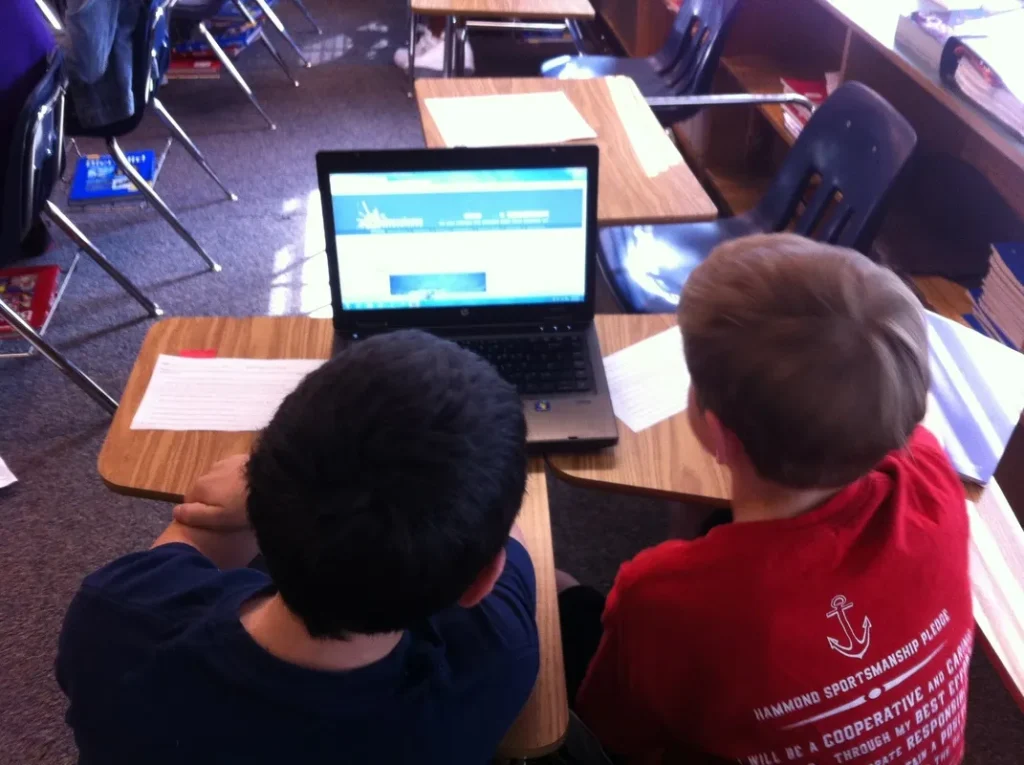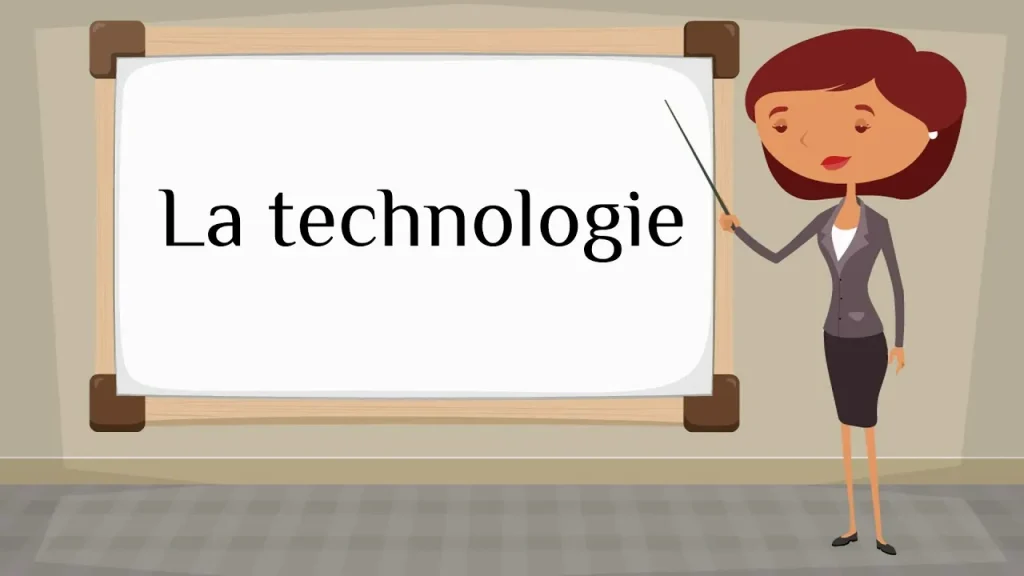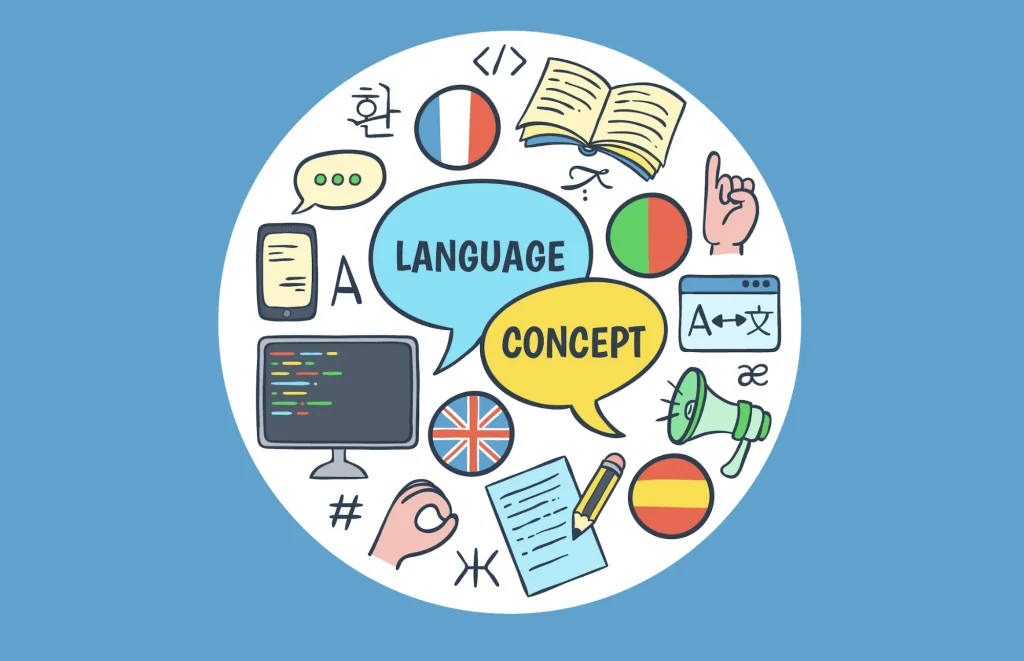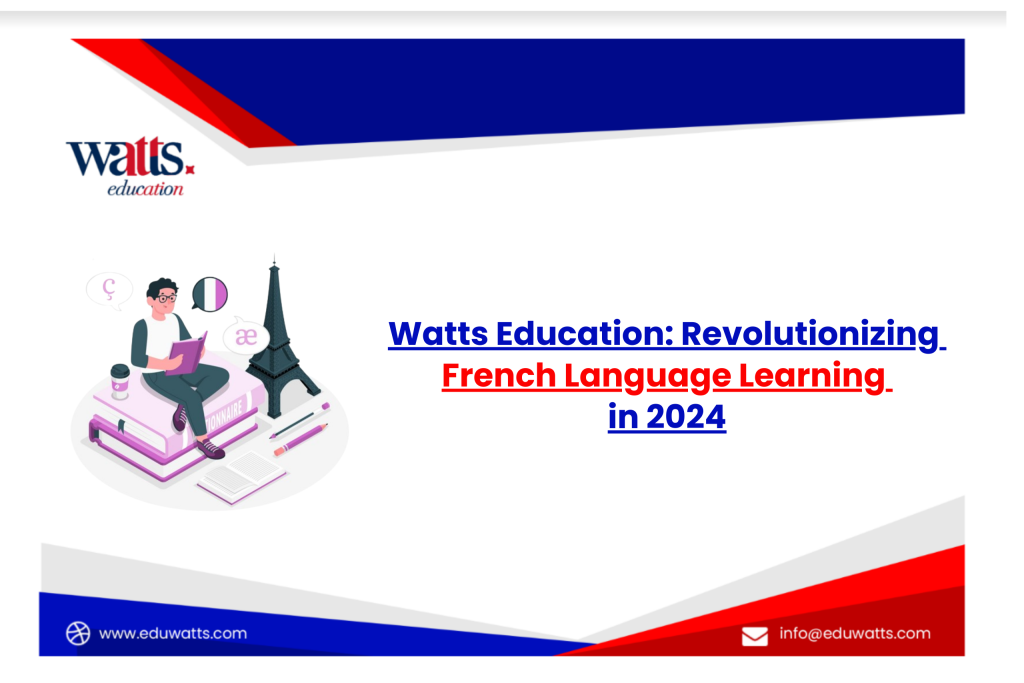Technology has significantly influenced language learning in recent times. It has reshaped the way in which languages can be learned. This is true, especially when mastering foreign languages such as French. In this essay, we will examine the impact of technology such as online platforms, mobile applications, etc on French Language Learning. Earlier students attended French language learning classes at local institutions or attended face to face tutoring classes. Even though this method was thought to be the best way to Learn French, it required a lot of time and money. However, with the onset of technology and the internet, French language learning has changed a lot.

The Evolution of Language Learning Technology
- Online Learning Platforms: You may have noticed a number of online learning platforms available to learn French online. Learning French can be fun, interactive, and easy with websites and applications like Watts Education and Duolingo. Also, these apps personalize lessons based on the learner’s ability to progress
- Mobile Applications: The growth of mobile technology has given rise to numerous Language Learning Apps that help learn French. There are even apps that allow individuals to practice vocabulary, grammar, and conversational skills using smartphones. Furthermore, these applications employ techniques like spaced repetition and social interactions to support learning.
- Virtual Classes: Technology has also enabled the rise of virtual French classes and tutoring sessions. These virtual classes connect learners with native French speakers and professional tutors through video calls. Additionally, this real-time interaction offers a dynamic learning environment that closely mimics in-person conversations. Thus, it provides students with valuable speaking practice and cultural insights.
Advantages of Technological Integration in French Language Learning

The integration of technology into French language learning offers several advantages. This makes it an appealing option for many learners.
- Accessibility: Students can access French language resources anytime, anywhere. You no longer need to search for “French classes near me” or follow rigid schedules. As a result of this accessibility and flexibility, learners can customize their courses. They can also tailor it according to their personal schedules and preferences.
- Personalized Learning: Technology helps make learning French easier and more personal by adjusting lessons to each learner’s needs and skill level. These online platforms and apps track progress and change the lessons to help improve weak areas, which makes learning French more effective.
- Interactive Content: The Interactive Content makes the learning process much simpler. Quizzes, games, and multimedia content make learning French engaging. Also, the interactive nature of these resources can help you understand complex concepts easily. For example, language learning apps use gamification techniques to reward progress and encourage consistent practice.
- Exposure to Authentic Language Use: Learners can interact with native French speakers during these virtual classes. Further, the online communities provide learners with opportunities to interact with native French speakers. This also helps in exposure to authentic language use and cultural nuances. Further, engaging in conversations with native speakers helps these learners develop a more natural and fluent command of French. This may not be possible to achieve through traditional methods alone.
Challenges in using French Language Learning Apps

We discussed the numerous benefits of French language learning apps. However, they also come with certain challenges and limitations. Some of them are
- Quality and Credibility: The plethora of available online resources can vary significantly in terms of quality and accuracy. Learners need to be careful, and selective and choose reputable platforms that offer well-structured and credible content. You should also ensure that your chosen platform aligns with the learning objective and provides accurate language instructions.
- Overreliance on Technology: While technology offers valuable tools, overreliance on digital resources may lead to gaps in learning. For example, relying solely on apps for vocabulary acquisition without practicing speaking or listening skills in real-life contexts may result in incomplete language development. Hence, to have a comprehensive learning experience balancing technological tools with traditional methods and immersive experiences is important.
- Technical Issues: Technical issues such as internet connectivity or software errors can disturb the learning process. Additionally, not all learners have equal access to the latest technology or high-speed internet. This may create disparities in learning opportunities.
- Self Discipline: A high level of motivation and discipline is required when you opt for a self paced online learning course. Hence, some of the students who are used to the traditional classroom environment may struggle to be consistent with their studies. You will need to implement strategies such as setting clear goals or tracking progress to maintain motivation.
The Balanced Approach to French Language Learning

A balanced approach that combines digital resources and traditional methods is best for effective results. As there are a variety of resources available, you could be easily confused about which one to choose from. Even though technology offers several benefits, it would be wise to take a balanced approach. That means this approach combines both traditional and technological methods.
Here are a few factors that you may consider before making your decision.
- Combination of Resources: You can enjoy a comprehensive learning experience by combining both Online Platforms and In-Person Classes. For example, you may use an app to practice vocabulary and grammar and also attend a local French conversation group. Alternatively, you can take occasional in-person tutorial classes.
- Immersive Experiences: You can improve your knowledge of French by engaging in immersive experiences. These include traveling to French speaking regions or participating in language exchange programs. This will help you gain a more practical learning experience.
- Setting clear goals: You may set clear learning goals and regularly track progress to ensure continuous improvement. Many online platforms offer progress-tracking features that can assist in monitoring achievements and identifying areas for growth.
- Feedback: You can always ask for feedback from your tutors. This can be done virtually or in person. Such constructive feedback from native speakers or experienced instructors can help you address specific challenges.
C2 Level- Watts Education
You can learn the French Language at different levels with Watts Education. We will illustrate the courses offered by Watts Education with the example of the C2 level. The C2 level suits people who are seeking an advanced level of proficiency in French. It will help you in analyzing literary works and participating in high level discussions.
Features of the course
- Globally recognized professional certification
- 66 hours of interactive training
- 24/7 access to e-learning portal
- Training by industry experts
- AI-powered, auto-graded exercises
- Training by industry experts
- Internship
- Access to job portal
Conclusion
The impact of technology on French language learning has been transformative. It offers new avenues for accessing resources and personalizes learning experiences. It also engages the learner with authentic language use. Online platforms, mobile applications, and virtual classes have democratized language education. As a result, French language learning has become more flexible and accessible. However, it is essential to address challenges such as quality control, overreliance on technology and motivation to ensure effective learning outcomes.
By adopting a balanced approach that combines technological tools with traditional methods and immersive experiences, learners can optimize their journey to mastering French. As technology continues to advance, the future of French language learning holds exciting possibilities for growth.
FAQs
Technology has changed the way to learn French Online. It offers diverse resources like online exercises, apps to learn grammar and vocabulary. These digital tools cater to the individual needs of a learner, making learning French easier than never before.
Digital tools like apps, flashcards, games, spaced repetition and immersive experiences can improve learning.
The future of French language learning is bright as the use of technology can improve learner experience. It can also customize the learning for each individual and enhance the learning experience.
Technology helps to implement new teaching strategies for various groups. This helps to enhance the classroom teaching experience and also the learning efficiency of the child.
Technology has definitely affected students learning French positively.


